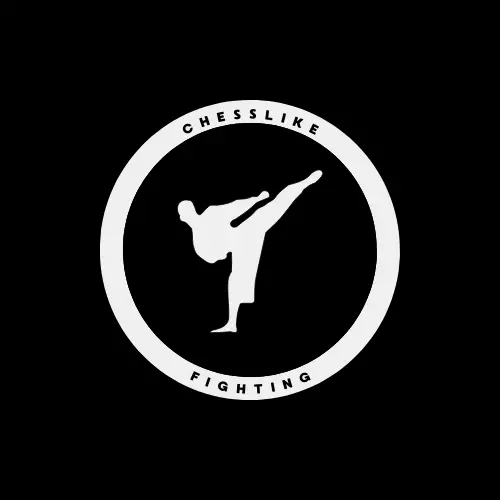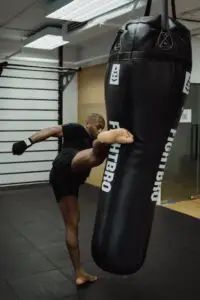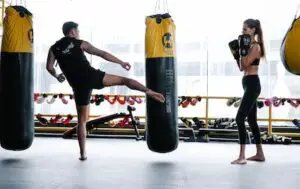Kung Fu is a term that encompasses a wide range of Chinese martial arts, and sigong is one of the key components of this ancient discipline. Sigong, also known as Chi Kung or Qigong, is a set of exercises that focus on cultivating energy, improving balance, coordination, and breathing techniques. This practice is essential for those who want to master Kung Fu as a form of self-defense and for individuals who seek to improve their overall health and well-being.
In this article, we’ll explain the importance of sigong in Kung Fu, the benefits it offers, and answer some of the most common questions about this practice. Read on to find out more about sigong and how it can transform your Kung Fu training.
What is sigong in Kung Fu?
Sigong is a fundamental aspect of traditional Chinese Kung Fu that emphasizes the cultivation and manipulation of energy through specific sets of exercises. The term sigong translates to ‘energy work’ and comprises a variety of techniques such as breathing, meditation, and physical movements that aim to bring balance to the body and mind.
Sigong is an essential part of Kung Fu training as it helps students to develop a deep understanding of the principles of Chinese martial arts and incorporate them into their combat techniques. The practice also enhances the quality of training by conditioning the body and mind to be in a relaxed, yet focused state.
What are the benefits of sigong in Kung Fu?
Sigong offers numerous benefits, both for physical and mental health, which makes it an attractive practice for many Kung Fu students. Here are some of the most compelling benefits you can experience when you incorporate sigong into your Kung Fu training:
– Relief from stress and anxiety: Sigong helps to reduce stress levels and promote relaxation by improving breathing techniques and training the mind to focus.
– Improved posture and balance: By practicing the various sigong exercises, you can develop a more stable base and improve your overall balance and posture.
– Increased strength and flexibility: Sigong movements involve full-body engagement, which helps to build strength and improve flexibility.
– Better focus and concentration: Sigong requires the individual to pay close attention to their movements, breathing, and inner state, which can enhance focus and concentration.
– Enhanced martial arts performance: Sigong techniques help to improve the quality of Kung Fu training by conditioning the body and mind to be in a relaxed yet focused state.
– Health Benefits: Sigong can help reduce blood pressure, improve circulation, boost immunity and promote overall health and wellness.
How can beginners start practicing sigong in Kung Fu?
If you are new to Kung Fu and would like to incorporate sigong into your training, there are several things you can do to get started. Here are some key steps to help you begin your sigong practice:
– Find a qualified teacher: A qualified Kung Fu instructor can help you learn the basic sigong movements and techniques, provide guidance, and offer feedback on your form. Check out local Kung Fu schools to find an appropriate instructor.
– Practice basic breathing techniques: Start with basic breathing exercises to help regulate breath and relax the body. Try inhaling through the nose and exhaling through the mouth.
– Learn foundational sigong movements: Practice basic sigong movements, such as simple qigong exercises, to develop proper posture and movement patterns.
– Incorporate sigong into your daily routine: Make sigong practice part of your daily routine to gain maximum benefits. Set aside a regular time each day to practice sigong movements and breathing exercises.
What are some common sigong exercises in Kung Fu?
Here are some common sigong exercises in Kung Fu that you can try:
– Ba Duan Jin: Also known as the Eight Pieces of Brocade, this ancient practice involves eight movements and focuses on deep breathing and stretching to promote the flow of qi in the body.
– Tai Chi: A series of fluid movements that emphasize softness, balance, and relaxation. Tai Chi is an excellent sigong exercise that can enhance physical and mental well-being.
– Dan Tian Breathing: This exercise helps to enhance lung capacity, promote relaxation, and improve oxygen flow in the body.
– Standing Meditation: A simple meditation practice that involves standing still and focusing on your breath. This exercise can help improve concentration, develop a sense of calmness, and boost overall well-being.
Can sigong be practiced on its own, without Kung Fu?
Yes, sigong can be practiced independently of Kung Fu or any other martial art. Many individuals practice sigong as a form of exercise and self-care, as it offers numerous benefits for physical, mental, and emotional health. Sigong can also be modified to suit your individual needs and goals, making it a flexible practice that can be tailored to your needs.
Is sigong suitable for everyone?
Yes, sigong is a suitable practice for everyone, regardless of age, ability, or fitness level. Sigong exercises can be tailored to suit individual needs and can be modified to accommodate any limitations or injuries. However, if you have any health issues or concerns, it’s best to consult with a qualified health professional before starting sigong practice.
Conclusion
Sigong is a critical aspect of traditional Chinese Kung Fu that emphasizes the cultivation of energy, coordination, and balance. Practicing sigong offers numerous benefits, ranging from stress relief to improved overall health and well-being. As a beginner in Kung Fu, incorporating sigong into your training can help you develop a deeper understanding of the principles of the martial art and enhance the quality of your training.
If you’re interested in sigong, find a qualified Kung Fu instructor to guide you through the various techniques and movements. With regular practice and patience, sigong can help transform your Kung Fu training and your overall physical and mental well-being.





